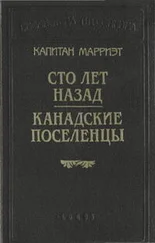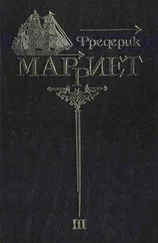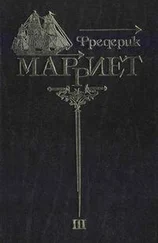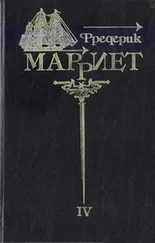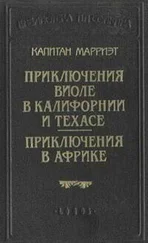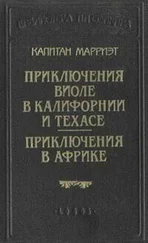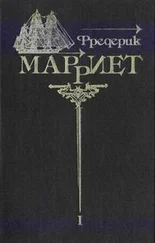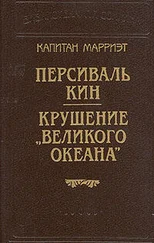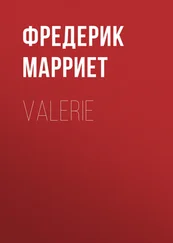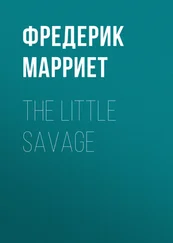Фредерик Марриет - Jacob Faithful
Здесь есть возможность читать онлайн «Фредерик Марриет - Jacob Faithful» — ознакомительный отрывок электронной книги совершенно бесплатно, а после прочтения отрывка купить полную версию. В некоторых случаях можно слушать аудио, скачать через торрент в формате fb2 и присутствует краткое содержание. Жанр: prose_military, literature_19, foreign_antique, foreign_prose, на английском языке. Описание произведения, (предисловие) а так же отзывы посетителей доступны на портале библиотеки ЛибКат.
- Название:Jacob Faithful
- Автор:
- Жанр:
- Год:неизвестен
- ISBN:нет данных
- Рейтинг книги:4 / 5. Голосов: 1
-
Избранное:Добавить в избранное
- Отзывы:
-
Ваша оценка:
- 80
- 1
- 2
- 3
- 4
- 5
Jacob Faithful: краткое содержание, описание и аннотация
Предлагаем к чтению аннотацию, описание, краткое содержание или предисловие (зависит от того, что написал сам автор книги «Jacob Faithful»). Если вы не нашли необходимую информацию о книге — напишите в комментариях, мы постараемся отыскать её.
Jacob Faithful — читать онлайн ознакомительный отрывок
Ниже представлен текст книги, разбитый по страницам. Система сохранения места последней прочитанной страницы, позволяет с удобством читать онлайн бесплатно книгу «Jacob Faithful», без необходимости каждый раз заново искать на чём Вы остановились. Поставьте закладку, и сможете в любой момент перейти на страницу, на которой закончили чтение.
Интервал:
Закладка:
A strong, empyreumatic, thick smoke ascended from the hatchway of the cabin, and, as it had now fallen calm, it mounted straight up the air in a dense column. I attempted to go in, but so soon as I encountered the smoke I found that it was impossible; it would have suffocated me in half a minute. I did what most children would have done in such a situation of excitement and distress—I sat down and cried bitterly. In about ten minutes I moved my hands, with which I had covered up my face, and looked at the cabin hatch. The smoke had disappeared, and all was silent. I went to the hatchway, and although the smell was still overpowering, I found that I could bear it. I descended the little ladder of three steps, and called “Mother!” but there was no answer. The lamp fixed against the after bulk-head, with a glass before it, was still alight, and I could see plainly to every corner of the cabin. Nothing was burning—not even the curtains to my mother’s bed appeared to be singed. I was astonished—breathless with fear, with a trembling voice, I again called out “Mother!” I remained more than a minute panting for breath, and then ventured to draw back the curtains of the bed—my mother was not there! but there appeared to be a black mass in the centre of the bed. I put my hand fearfully upon it—it was a sort of unctuous, pitchy cinder. I screamed with horror—my little senses reeled—I staggered from the cabin and fell down on the deck in a state amounting almost to insanity: it was followed by a sort of stupor, which lasted for many hours.
As the reader may be in some doubt as to the occasion of my mother’s death, I must inform him that she perished in that very peculiar and dreadful manner, which does sometimes, although rarely, occur, to those who indulge in an immoderate use of spirituous liquors. Cases of this kind do, indeed, present themselves but once in a century, but the occurrence of them is too well authenticated. She perished from what is termed spontaneous combustion , an inflammation of the gases generated from the spirits absorbed into the system. It is to be presumed that the flames issuing from my mother’s body completely frightened out of his senses my father, who had been drinking freely; and thus did I lose both my parents, one by fire and the other by water, at one and the same time.
Chapter Two
It was broad daylight when I awoke from my state of bodily and mental imbecility. For some time I could not recall to my mind all that had happened: the weight which pressed upon my feelings told me that it was something dreadful. At length, the cabin hatch, still open, caught my eye; I recalled all the horrors of the preceding evening, and recollected that I was left alone in the lighter. I got up and stood on my feet in mute despair. I looked around me—the mist of the morning was hanging over the river, and the objects on shore were with difficulty to be distinguished. I was chilled from lying all night in the heavy dew, and, perhaps, still more from previous and extraordinary excitement. Venture to go down into the cabin I dare not. I had an indescribable awe, a degree of horror at what I had seen, that made it impossible; still I was unsatisfied, and would have given worlds, if I had had them, to explain the mystery. I turned my eyes from the cabin hatch to the water, thought of my father, and then, for more than half an hour, watched the tide as it ran up—my mind in a state of vacancy. As the sun rose, the mist gradually cleared away; trees, houses, and green fields, other barges coming up with the tide, boats passing and repassing, the barking of dogs, the smoke issuing from the various chimneys, all broke upon me by degrees; and I was recalled to the sense that I was in a busy world, and had my own task to perform. The last words of my father—and his injunctions had ever been a law to me—were, “Mind, Jacob, we must be up at the wharf early to-morrow morning.” I prepared to obey him. Purchase the anchor I could not; I therefore slipped the cable, lashing a broken sweep to the end of it, as a buoy-rope, and once more the lighter was at the mercy of the stream, guided by a boy of eleven years old. In about two hours I was within a hundred yards of the wharf, and well in-shore, I hailed for assistance, and two men, who were on board of the lighters moored at the wharf, pushed off in a skiff to know what it was that I wanted. I told them that I was alone in the lighter, without anchor or cable, and requested them to secure her. They came on board, and in a few minutes the lighter was safe alongside of the others. As soon as the lashings were passed, they interrogated me as to what had happened, but although the fulfilling of my father’s last injunctions had borne up my spirits, now that they were obeyed a reaction took place. I could not answer them; I threw myself down on the deck in a paroxysm of grief, and cried as if my heart would break.
The men, who were astonished, not only at my conduct but at finding me alone in the lighter, went on shore to the clerk, and stated the circumstances. He returned with them, and would have interrogated me, but my paroxysm was not yet over, and my replies, broken my sobs, were unintelligible. The clerk and the two men went down into the cabin, returned hastily, and quitted the lighter. In about a quarter of an hour I was sent for, and conducted to the house of the proprietor—the first time in my life that I had ever put my foot on terra firma . I was led into the parlour, where I found the proprietor at breakfast with his wife and his daughter, a little girl nine years old. By this time I had recovered myself, and on being interrogated, told my story clearly and succinctly, while the big tears coursed each other down my dirty face.
“How strange and how horrible!” said the lady to her husband; “I cannot understand it even now.”
“Nor can I; but still it is true, from what Johnson the clerk has witnessed.”
In the meantime my eyes were directed to every part of the room, which appeared to my ignorance as a Golcondo of wealth and luxury. There were few things which I had seen before, but I had an innate idea that they were of value. The silver tea-pot, the hissing urn, the spoons, the pictures in their frames, every article of furniture caught my wondering eye, and for a short time I had forgotten my father and my mother; but I was recalled from my musing speculations by the proprietor inquiring how far I had brought the lighter without assistance.
“Have you any friends, my poor boy?” inquired the lady.
“No.”
“What! no relations onshore?”
“I never was on shore before in my life.”
“Do you know that you are a destitute orphan?”
“What’s that?”
“That you have no father or mother,” said the little girl.
“Well,” replied I, in my father’s words, having no answer more appropriate, “it’s no use crying; what’s done can’t be helped.”
“But what do you intend to do now?” inquired the proprietor, looking hard at me after my previous answer.
“Don’t know, I’m sure. Take, it coolly,” replied I, whimpering.
“What a very odd child!” observed the lady. “Is he aware of the extent of his misfortune?”
“Better luck next time, missus,” repled I, wiping my eyes with the back of my hand.
“What strange answers from a child who has shown so much feeling,” observed the proprietor to his wife. “What is your name.”
“Jacob Faithful.”
“Can you write or read?”
“No,” replied I, again using my father’s words: “No, I can’t—I wish I could.”
Читать дальшеИнтервал:
Закладка:
Похожие книги на «Jacob Faithful»
Представляем Вашему вниманию похожие книги на «Jacob Faithful» списком для выбора. Мы отобрали схожую по названию и смыслу литературу в надежде предоставить читателям больше вариантов отыскать новые, интересные, ещё непрочитанные произведения.
Обсуждение, отзывы о книге «Jacob Faithful» и просто собственные мнения читателей. Оставьте ваши комментарии, напишите, что Вы думаете о произведении, его смысле или главных героях. Укажите что конкретно понравилось, а что нет, и почему Вы так считаете.

